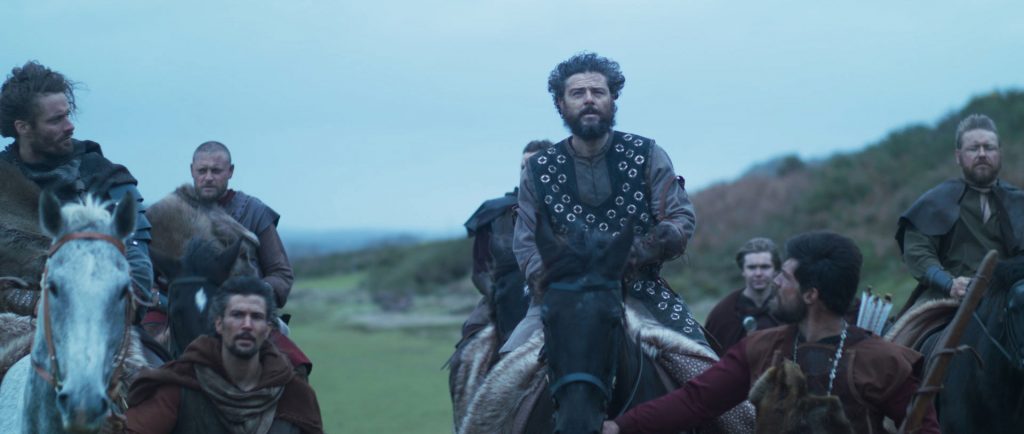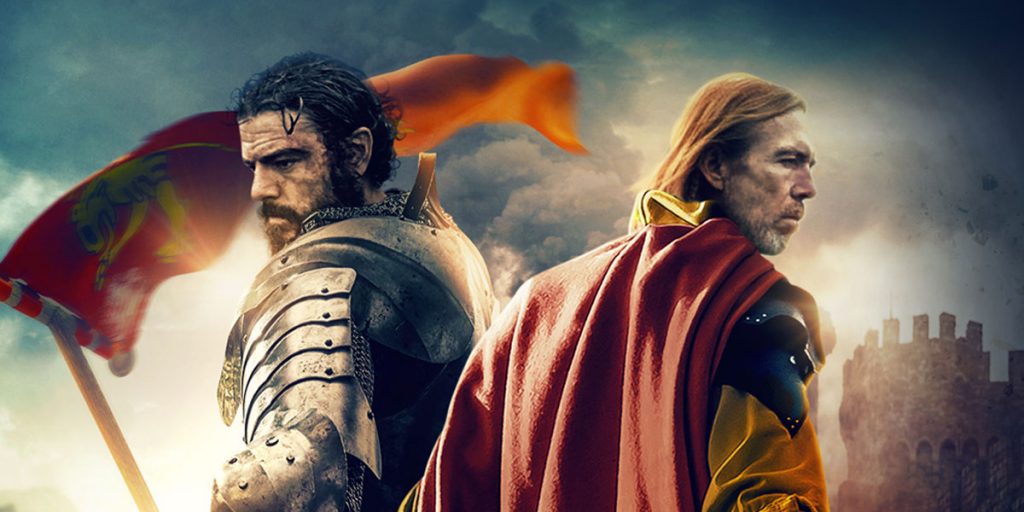Arthur & Merlin: Knights of Camelot offers a new interpretation of one of the most well-known stories to be transposed on the screen: the deeds of King Arthur, Merlin and the Knights of the Round Table.
Read our review of Arthur & Merlin: Knights of Camelot in Italian:
Arthur & Merlin: Knights of Camelot Recensione
In Arthur & Merlin: Knights of Camelot, King Arthur (Richard Short) embarks on a long and bloody war to defend Camelot. Left unguarded, Camelot falls prey to Modred (Joel Phillimore), the monarch’s illegitimate son, who takes advantage of Arthur’s absence and, aided by the Sorceress Vortigone (Jennifer Matter), seduces the young and beloved queen Guinevere (Stella Stocker). Arthur will need to enlist the help of both his loyal kights and the mighty Merlin (Richard Brake) to try and defeat Modred and restore the order in Camelot and in England.
Arthur and Merlin: Knights of Camelot is, essentially, an enjoyable action movie with reasonably well-choreographed battle scenes and a fascinating setting, made even more so by the “legendary” epics narrated by the film. The lack of adequate CGI equipment is probably to blame for the film’s visuals, as scenes involving magic and the supernatural are less effective than they should be and, at times, obsolete. However, we also find some interest stylistic choices, which deserved to be approached in more depth and specificity, and with more substantial writing.
Among the aspects that move away from the tale’s classic origins is certainly the desire to try and renew interest in the tie between the myth of King Arthur and British history, an aspect that hasn’t been given much attention in modern pop culture, which usually tends to favour its fantastical and magical aspects. In the film, ample room is given to themes such as war and the battle with the Roman Empire and the Saxon who invaded Britan. It’s an interesting choice, even though it’s made less effective by an often fragmented narrative: perhaps in the attempt to add too many different elements to the story (war, family, magic and supernatural, as well as an attempt to give insight on the figure of Arthur and his role as an “absent” king), the final product is somewhere in between – a film that offers interesting food for thought, but that can’t properly define any of the themes it approaches.

In fact, Arthur and Merlin: Knights of Camelot doesn’t concern itself with telling you about what Camelot is, and where Arthur and Merlin’s friendship originates from – an aspect that highlights just how well this specific myth is considered to be known, at least generally speaking, by most audience members. Merlin, important yet evanescent, is given a few key scenes, but the title results somewhat misleading, as the one and only protagonist of the film is, without a doubt, King Arthur.
In Arthur and Merlin: Knights of Camelot, Richard Short’s Arthur is as tormented as ever, tortured by nightmares and clearly suffering from PTSD. He’s been living the war for so long that it’s part of himself, to an extent that his memories of how it all begun get more confused by the day, and his desire to go back home merges with his inability to decide whether or not returning to Camelot, and abandoning the battle field, is what he really desires. Occasionally too “ardent”, Short’s performance is overall effective, backed by what can be perceived as a real attempt to study and understand the character.
Arthur and Merlin: Knights of Camelot can definitely be described as an entertainment product that is only partially successful, undermined by certain aspects that involve both its technical features and its narrative structure, as well as an often disjointed editing that makes the viewing experience less fluid. The movie does, however, present some interesting causes for reflection, which set it apart from the myth’s origins and can make for an interesting viewing experience.
Arthur & Merlin: Knights of Camelot is on Digital HD and DVD on 13 July from Signature Entertainment.

